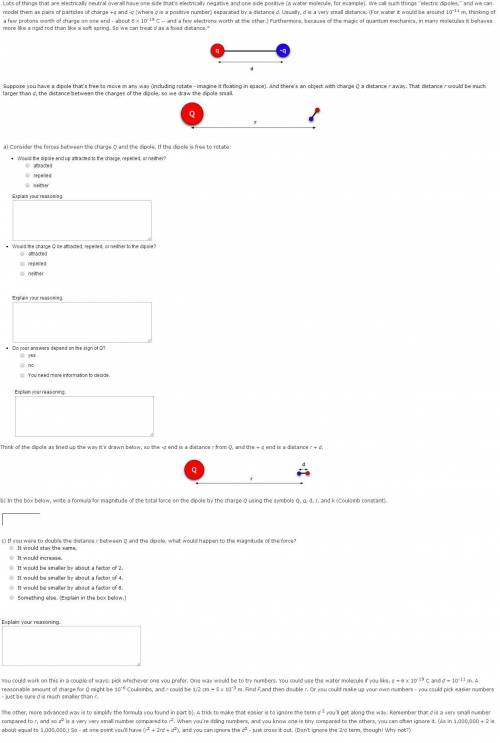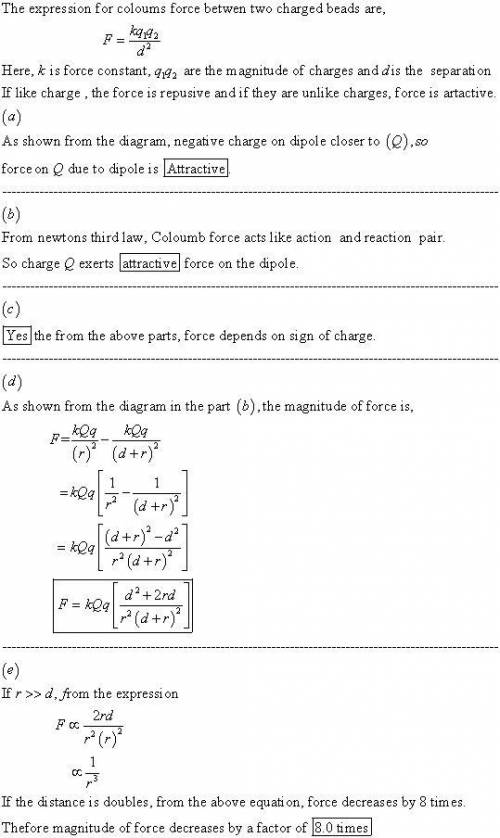
Physics, 20.02.2020 22:20 SandyRiverty
Suppose you have a dipole that's free to move in any way (including rotate - imagine it floating in space). And there's an object with charge Q a distance r away. That distance r would be much larger than d, the distance between the charges of the dipole, so we draw the dipole small.

Answers: 2
Another question on Physics

Physics, 21.06.2019 21:30
One day, after pulling down your window shade, you notice that sunlight is passing through a pinhole in the shade and making a small patch of light on the far wall. you see that the patch of light seems to be a circular diffraction pattern. it appears that the central maximum is about 1 cm across and you estimate that the distance from the window shade to the wall is about 3 m. what is (a) the average wavelength of sunlight? (b) the diameter of the pinhole?
Answers: 3

Physics, 22.06.2019 05:00
Modern physics a photon emitted from an excited hydrogen atom has an energy of 3.02 electron volts. which electron energy-level transition would produce this photon? a. n=1 to n=6 b. n=2 to n=6 c. n=6 to n=1 d. n=6 to n=2 i chose b but the correct answer is d can someone tell me why? and what's the difference?
Answers: 1

Physics, 22.06.2019 05:30
Choose the most likely outcome of this scenario: jen decided to go bike riding without a helmet. while no one is around during her ride, she is thrown from her bike when her wheel goes into a pothole. she is not injured, but she is terrified to get back on her bike. what happens next? a. her physical health is affected even though she wasn't hurt. b. her mental and emotional health are affected because she is afraid to get back on her bike. c. her social health is affected because she is worried her friends saw the fall. d. her overall health is not affected at all by her fall.
Answers: 1

Physics, 22.06.2019 17:20
Scientific models are based on current knowledge, which can limit their effectiveness when new discoveries are made.
Answers: 1
You know the right answer?
Suppose you have a dipole that's free to move in any way (including rotate - imagine it floating in...
Questions




















![F = kQq[\frac{d^{2}+2rd}{r^{2}(d+r)^{2}} ]](/tpl/images/0518/0139/3ab6c.png)




